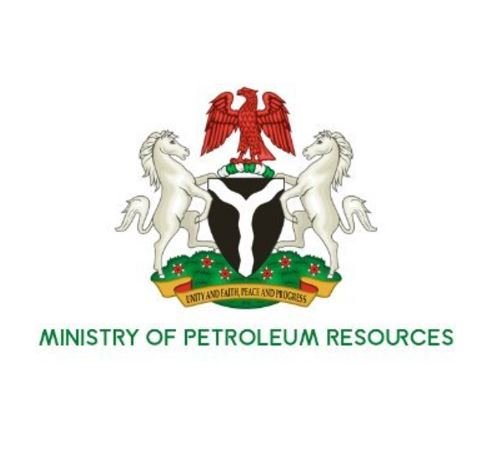The Federal Ministry of Petroleum Resources in Nigeria manages the country’s oil and gas sector. It formulates policies to ensure the sustainable development of these resources.
The ministry’s responsibilities include overseeing crude oil marketing, licensing operations, and promoting private investment in the industry.
It also coordinates with various agencies to optimize Nigeria’s oil and gas benefits. Currently, Bola Tinubu serves as the minister of petroleum resources, supported by other key officials like the minister of state (gas), and minister of state (oil).
READ ALSO: Complete List Of Ministers Of Women’s Affairs In Nigeria
List Of Ministers Of State (Oil) Petroleum Resources In Nigeria
No | Name | Term Start | Term End | Party |
|---|---|---|---|---|
1 | Sen. Heineken Lokpobiri | 2023 | Present | APC |
READ ALSO: List Of Ministers Of State For Environment In Nigeria
What Are The Agencies Under The Ministry Of Petroleum Resources?
The Ministry of Petroleum Resources in Nigeria oversees several agencies responsible for managing the country’s oil and gas sector. Here are the key agencies under the Ministry:
1. Nigerian National Petroleum Corporation (NNPC Limited)
NNPC Limited is the central organization responsible for the exploration, production, and management of oil and gas in Nigeria. This corporation was created to manage all activities related to petroleum in the country, from refining crude oil to marketing petroleum products.
Recently, NNPC became a limited liability company, allowing it to operate more like a business and focus on energy transition and sustainability.
2. Nigerian Upstream Regulatory Commission (NUPRC)
NUPRC regulates upstream oil and gas operations. If you are involved in oil exploration or production, this is the agency that issues licenses and monitors compliance with laws.
NUPRC confirms that companies operate safely and that they protect the environment while contributing to Nigeria’s oil production. The agency also encourages local companies to get involved in these activities, helping boost the local economy.
3. Petroleum Training Institute (PTI)
PTI is where professionals in the oil and gas sector get specialized training. It offers courses in petroleum engineering, geology, refining technology, and more.
PTI ensures that the workforce is skilled and equipped to handle the complexities of the oil industry. It also supports research and innovation to help improve the industry’s practices and technologies.
READ ALSO: List Of Ministers Of Federal Capital Territory In Nigeria (1975-Present)
4. Petroleum Technology Development Fund (PTDF)
If you’re a student or researcher interested in the petroleum industry, PTDF is the agency that funds scholarships and research projects. Their main goal is to develop local expertise in petroleum technology so that Nigeria can rely less on foreign professionals. By supporting education, PTDF helps build a strong foundation for the country’s future in the oil industry.
5. Nigerian Nuclear Regulatory Authority (NNRA)
Though NNRA deals mainly with nuclear energy, it supports the oil and gas sector by ensuring that any use of nuclear technology for energy production meets safety standards.
The agency makes sure that any nuclear-related energy applications are carried out responsibly and in line with international safety regulations.
6. Nigerian Content Development And Monitoring Board (NCDMB)
NCDMB’s mission is to promote the involvement of Nigerian companies in the oil and gas industry. They provide local businesses get opportunities to participate in petroleum projects to help create jobs, boost skills development, and stimulate economic growth in the country.
7. Nigerian Midstream and Downstream Petroleum Regulatory Authority (NMDPRA)
NMDPRA is responsible for regulating the midstream and downstream segments of the petroleum industry. This includes everything from refining oil to transporting and selling petroleum products.
The agency also confirms that these activities are conducted safely and efficiently, while also promoting fair competition and addressing issues like fuel shortages.
READ ALSO: List Of Ministers Of Special Duties And Inter-Governmental Affairs In Nigeria
Who Is The New Minister Of State (Oil) Petroleum Resources In Nigeria?

The new Minister of State for Petroleum Resources (Oil) in Nigeria is Heineken Lokpobiri. He took on this role in August 2023 under President Bola Tinubu’s administration.
As part of his duties, Lokpobiri works alongside Ekperikpe Ekpo, who handles the gas sector. Lokpobiri replaced Timipre Sylva, the previous minister, to help oversee Nigeria’s oil industry, which is one of the key drivers of the country’s economy.
Heineken Lokpobiri has served in several high-ranking roles. One of his notable positions was as the Minister of State for Agriculture and Rural Development from 2015 to 2019 under former President Muhammadu Buhari.
His work in the agricultural sector was notable, especially as Nigeria is constantly looking to improve its self-sufficiency in food production. Before his time in the agriculture sector, Lokpobiri also served as a Senator representing Bayelsa West.
He held this position from 2007 to 2015. During his time as a senator, he contributed to different legislative processes, around the Niger Delta region. As a senator, he worked on committees such as Police Affairs, Niger Delta, Public Accounts, and Sports.
One of his legislative achievements was passing a bill that established legal support and welfare for the elderly in Nigeria. Lokpobiri started his political career in Bayelsa state.
From 1999 to 2003, he served in the Bayelsa State House of Assembly and even became the Speaker of the Assembly. Lokpobiri is well-qualified.
He holds a law degree (LL.B) from Rivers State University, and in 2015, he earned a doctorate in Environmental Law from Leeds Beckett University in the UK.
As the new Minister of State for Petroleum Resources (Oil), Lokpobiri’s role is to manage Nigeria’s oil resources and the challenges facing the sector.
Oil remains one of Nigeria’s biggest exports, and Lokpobiri will play a major part in ensuring the industry is well-regulated and continues to contribute positively to the economy.

